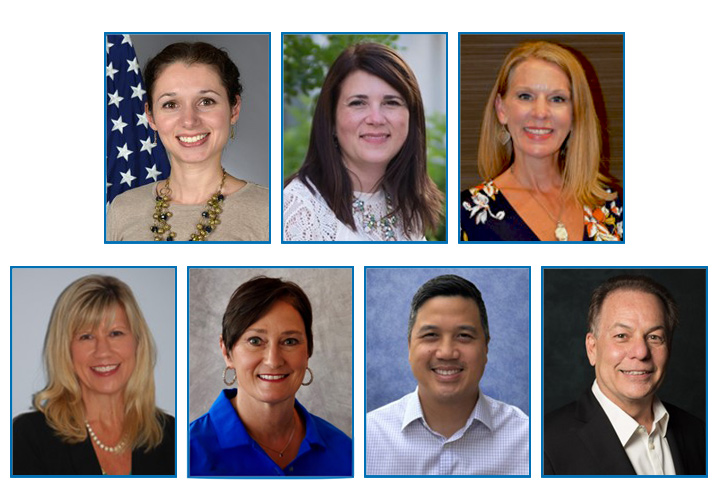Department of Veteran Affairs
Washington, DC
Substance use disorder (SUD) is a chronic, relapsing medical condition that alters behavior through functional changes in the brain which regulate reward, stress, and self-control.1 Although evidence-based treatment for opioid use disorder (OUD) and alcohol use disorder (AUD) is available, treatment access, especially for those living in rural areas, and associated stigma with seeking treatment are ongoing barriers.2 The Veterans Health Administration, Pharmacy Benefits Management, Clinical Pharmacy Practice Office developed an innovative, longitudinal, multi-dimensional, enterprise-wide approach in partnership with the Office of Rural Health to leverage Clinical Pharmacist Practitioners (CPP) as part of collaborative care teams with a central focus of utilizing their medication expertise to improve access to SUD evidence-based treatment while reducing stigma.
Programmatic framework to support CPP-led SUD care for rural patients was built on previously developed and scalable infrastructure.3,4 In 2020, 35 CPP across 34 healthcare facilities were hired and integrated into interprofessional teams to increase access to SUD care for patients living in rural areas. In June and July 2020, 234 CPP attended a 3-day virtual training with curriculum focused on teaching case-based, foundational aspects of SUD care with a focus on barrier-free access to AUD and OUD prevention, medication treatment, recovery, and harm and risk reduction. Concurrently, our team forged strategic relationships with key stakeholders to advocate for legislative changes to authorize CPP controlled substance prescribing and equitable payment for services.
CPP funded through the program completed 120,244 patient care encounters and served 39,355 patients (51.8% rural) from October 2019 to September 2023 primarily via telemedicine (66%). Qualitative evaluation found high rates of patient satisfaction and care experience with SUD care provided by CPP. The comprehensive, system-wide SUD clinical training was a catalyst for an increasing trend of CPP delivering SUD care demonstrated by a steady increase in patients and encounters. Advocacy for legislative change resulted in the removal of required waivers to prescribe medications for OUD in January 2023 and through the end of 2023, 105 DEA registered CPPs prescribed buprenorphine medication for OUD for 1,109 patients, with 70 medication initiations. Of these 5,299 encounters, 52.8% were delivered using telemedicine with 1,981 by audio-visual and 1,607 by audio-only.
This project highlights a novel approach to supporting SUD care for patients by integrating CPP to provide direct clinical care as an additional provider on interprofessional teams across practice settings, especially in underserved rural settings, while increasing knowledge of CPP managing and treating patients with these conditions and supporting on-going practice advancement.
References:
- National Institute on Drug Abuse. Drug Misuse and Addiction. Accessed July 19, 2024.
https://nida.nih.gov/publications/drugs-brains-behavior-science-addiction/drug-misuse-addiction. - Rural Health Information Hub. Substance use and misuse in rural areas. Accessed July 22, 2024. https://www.ruralhealthinfo.org/topics/substance-use.
- Groppi J, Ourth H, Tran M, Morreale A, et al. Increasing rural patient access using clinical pharmacy specialist providers: Successful practice integration within the Department of Veterans Affairs. Am J Health-Syst Pharm. 2021; 78:712-719.
- Alliu V et al. “Leveraging Clinical Pharmacist Practitioners to Increase Rural Veteran Access.” Office of Rural Health Newsletter. Fall 2021. Pg 7-10.
https://www.ruralhealth.va.gov/docs/news/ORH_Newsletter_Fall2021_FINAL.pdf.
 Top Row, Left to Right: Veldana Alliu, Tera Moore, Terri Jorgenson
Top Row, Left to Right: Veldana Alliu, Tera Moore, Terri Jorgenson
Bottom Row, Left to Right: Julie Groppi, Heather Ourth, Michael Tran, Anthony Morreale
